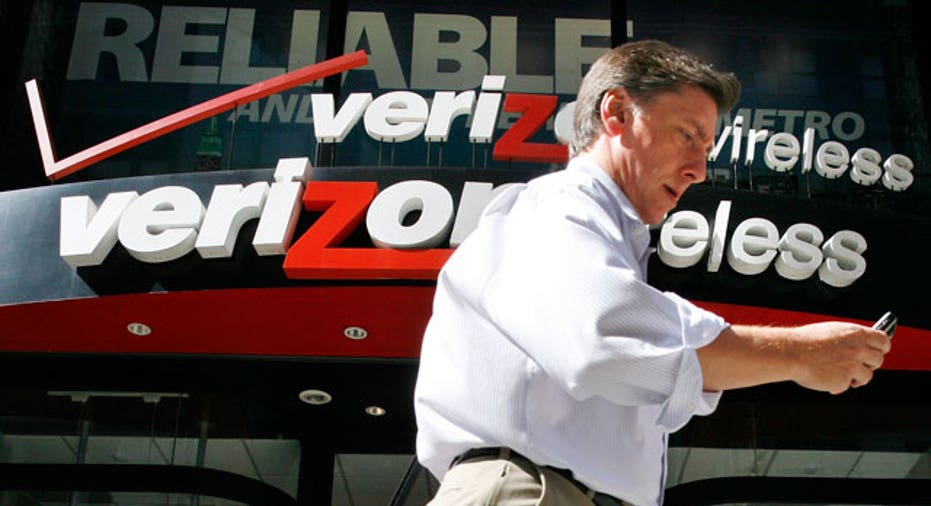Flurry of M&A Rocks the Smartphone World

The fast-growing smartphone world was energized by $137 billion worth of deal-making this week that highlights companies’ efforts to seize greater control of their respective phone-related businesses.
Eyeing tougher competition in the wireless world, Verizon Communications (NYSE:VZ) shelled out a record $130 billion to buy Vodafone’s (NYSE:VOD) 45% stake in Verizon Wireless, bringing the joint venture entirely under the telecom giant’s roof.
Likewise, Microsoft (NYSE:MSFT) surprised the tech industry by agreeing to pay $7.2 billion for Nokia’s (NYSE:NOK) mobile phone business and patents, a move that will give Microsoft a foothold in both the software and hardware parts of the phone ecosystem.
"It’s about taking control of your own destiny," said Mark Spoonauer, editor-in-chief of LAPTOP Magazine.
While consumers may not see an immediate impact from the deals, the burst of M&A could have deep ripple effects over time in the form of access to faster data and more phones.
"Any time you have people in an industry who are actively striving and competing to be better, it’s always beneficial to consumers because they are going to want to earn your service," said Gene Urcan, an M&A investment banker at boutique firm Capello Group.
The telecom sector has experienced a flurry of deals this year, with 645 transactions spawning global M&A volume of $312.4 billion -- the highest year-to-date level since 2000’s $601.3 billion, according to Dealogic.
The Top 10 M&A Deals in History
Can Verizon Maintain its Lead?
The Verizon deal comes at a time when its competitors are clearly bulking up, threatening to narrow the wireless provider’s lead in the U.S.
Sprint (NYSE:S) is fresh off a $21.6 billion deal with Japan’s SoftBank that should provide the company with greater resources as it looks to gain ground on Verizon and AT&T.
Discount wireless provider T-Mobile US (NYSE:TMUS), the No. 4 player in this space, rrevealed earlier this month it landed 1.1 million new customers in the second quarter, displaying the benefits of its decision to combine with smaller rival MetroPCS.
Now that Verizon has full control of the wireless operator, it won’t need to split the $8.5 billion in dividends Verizon Wireless paid out to its corporate owners last year. That means Verizon has more money to plow into its infrastructure.
"It’s about not being reliant and siphoning money off to another partner and concentrating on the U.S. to remain in a leadership position," said Spoonauer. "They need to invest a lot more in their infrastructure to stay ahead of the game not only in terms of coverage but in terms of performance."
Who is your preferred mobile phone provider?
Verizon alluded to this in its press release announcing the deal, saying that taking full control of the wireless business would position it better to "take advantage of the changing competitive dynamics in the market."
Now that it’s disentangled from Verizon, Vodafone is being mentioned as a possible takeover target for a player looking to gain a foothold in Europe, such as SoftBank or AT&T.
The Verizon Wireless transaction probably won’t have an immediate impact on consumers, although down the line the added financial resources could translate to faster data speeds for users.
"Hopefully we’re going to see an acceleration on innovation of the network," said Spoonauer. "Speed is everything in terms of wireless."
At the same time, the transaction could lay the groundwork for greater synergies between Verizon’s FiOS service and landline offerings along with its wireless business.
Microsoft Plays Defense
On the smartphone front, Microsoft cemented its shift to a devices-and-services focus by acquiring Nokia’s floundering handset business. Nokia has just 3% of the smartphone market and 15% of the handset market, down from 40% as recently as 2007.
"There’s not a lot of evidence of companies buying struggling device makers and turning them around. But if there is anyone that can do it, it is Microsoft. I’m optimistic," said Urcan.
Microsoft remains well behind industry leaders Google (NASDAQ:GOOG) and Apple (NASDAQ:AAPL), which combined control about 90% of the market.
According to IDC, Windows Phone shipments surged by 78% year-over-year in the second quarter to 8.7 million units. That increase was largely thanks to Nokia, which accounted for 81% of all Windows phones shipped that quarter.
While Microsoft enjoyed the partnership, it wasn’t making enough money off of it.
Analysts said Microsoft’s royalty gross margin is likely to be above $40 per unit thanks to the acquisition, compared with less than $10 under the current partnership with Nokia.
"I see this as a defensive move from Microsoft’s point of view. They need to make sure their most important licensee doesn’t go anywhere else. There’s no better way to do that than acquire the company outright," said Spoonauer.
For consumers, the Nokia deal could eventually lead to greater phone selection across carriers.
By selling itself to Microsoft, Spoonauer said, Nokia may be able to "muscle their way to more providers" and "address the shortfall in the app marketplace by attracting more developers."



















